On the afternoon of May 27, 2025, in celebration of the 120th anniversary of Fudan University, the Center for American Studies hosted its 59th Research Symposium under the theme “Domestic and Foreign Policy in Trump’s Second Term.” The event was chaired by Professor Zhao Minghao, Deputy Director of the Center, and featured keynote presentations by Professor Wu Xinbo, Dean of the Institute of International Studies and Director of the Center for American Studies; Professor Song Guoyou, Deputy Director of the Center; Professor Wei Zongyou and Professor Wang Hao of the Center; and Associate Professor Cao Ting, Director of the Center for Latin American Studies. Nearly one hundred participants—including faculty members, students, and alumni from Fudan University, as well as guests from other institutions—attended the symposium.
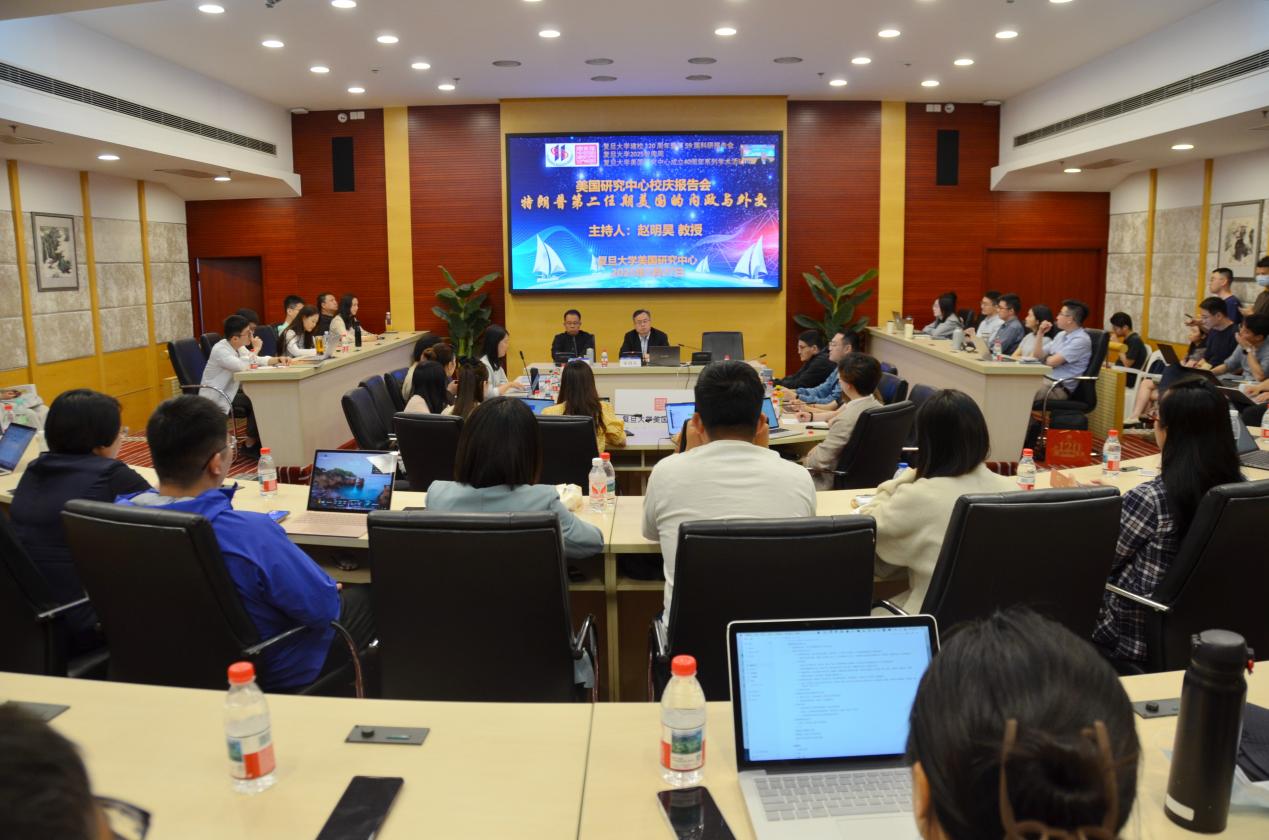
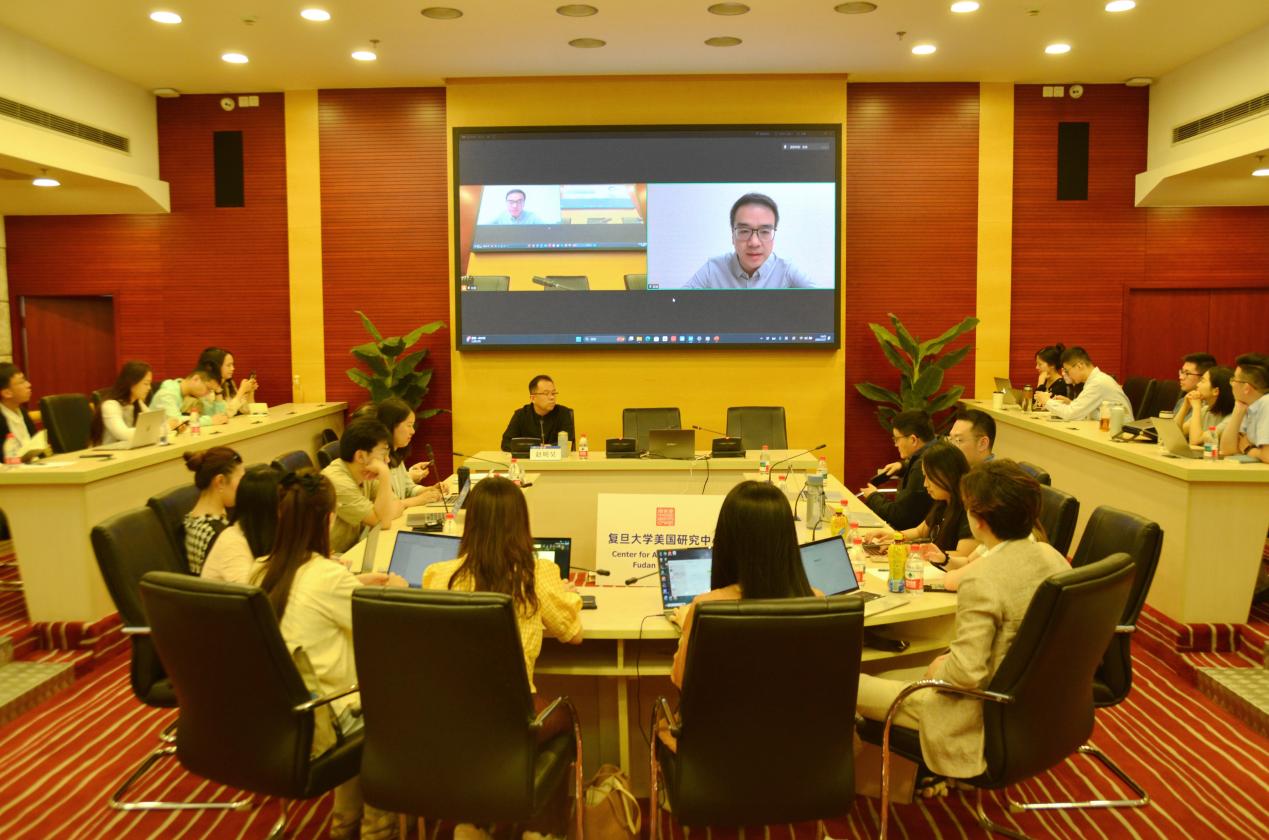
Professor Wang Hao delivered a speech titled “Major Shifts in U.S. Domestic Politics,” in which he analyzed the structural transformation behind what he termed the “Trump Revolution.” He argued that the U.S. political system is undergoing unprecedented shocks—including political polarization, the expansion of executive authority, and the rise of populism. The political foundation for these changes lies in the significant expansion of the “Trump coalition” during the 2024 election, which has had a profound impact not only on U.S. political stability but also on global political dynamics. However, he noted that this expanded coalition also faces challenges in managing internal tensions. Professor Wang further discussed likely policy directions in Trump’s second term, predicting a continued emphasis on economically driven foreign policy and potentially more radical initiatives across various domains.
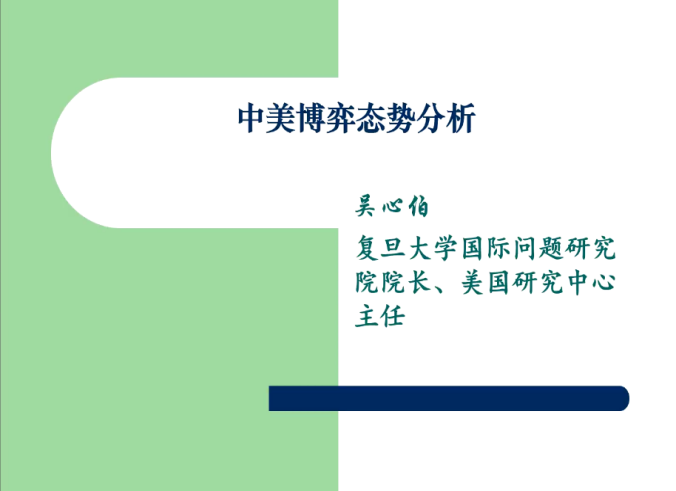
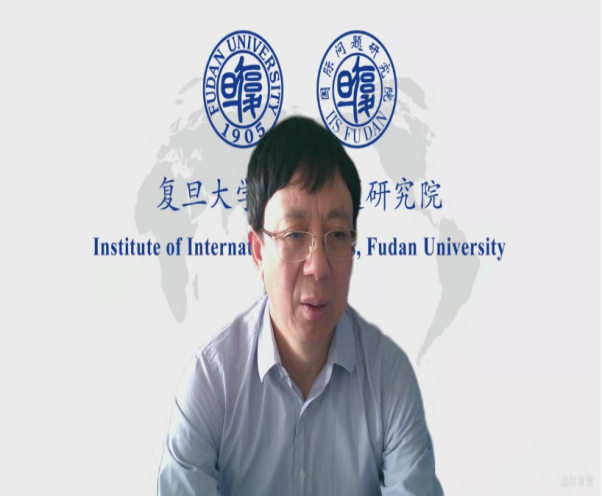
Professor Wu Xinbo’s speech, “Analyzing the U.S.-China Strategic Contest,” focused on the multifaceted strategies adopted by the Trump administration toward China, including easing of trade tensions and selective tariff exemptions. He emphasized that while the U.S. side exhibited signs of misjudgment, inadequate preparation, and tactical missteps, China responded with a firm negotiating stance and strategic composure. Professor Wu noted that in defending its sovereignty and resisting external pressure, China also actively engaged in global cooperation. He concluded that despite the challenges, the U.S.-China competition has prompted valuable reflection and strategic recalibration on China’s part, strengthening its position in international affairs.
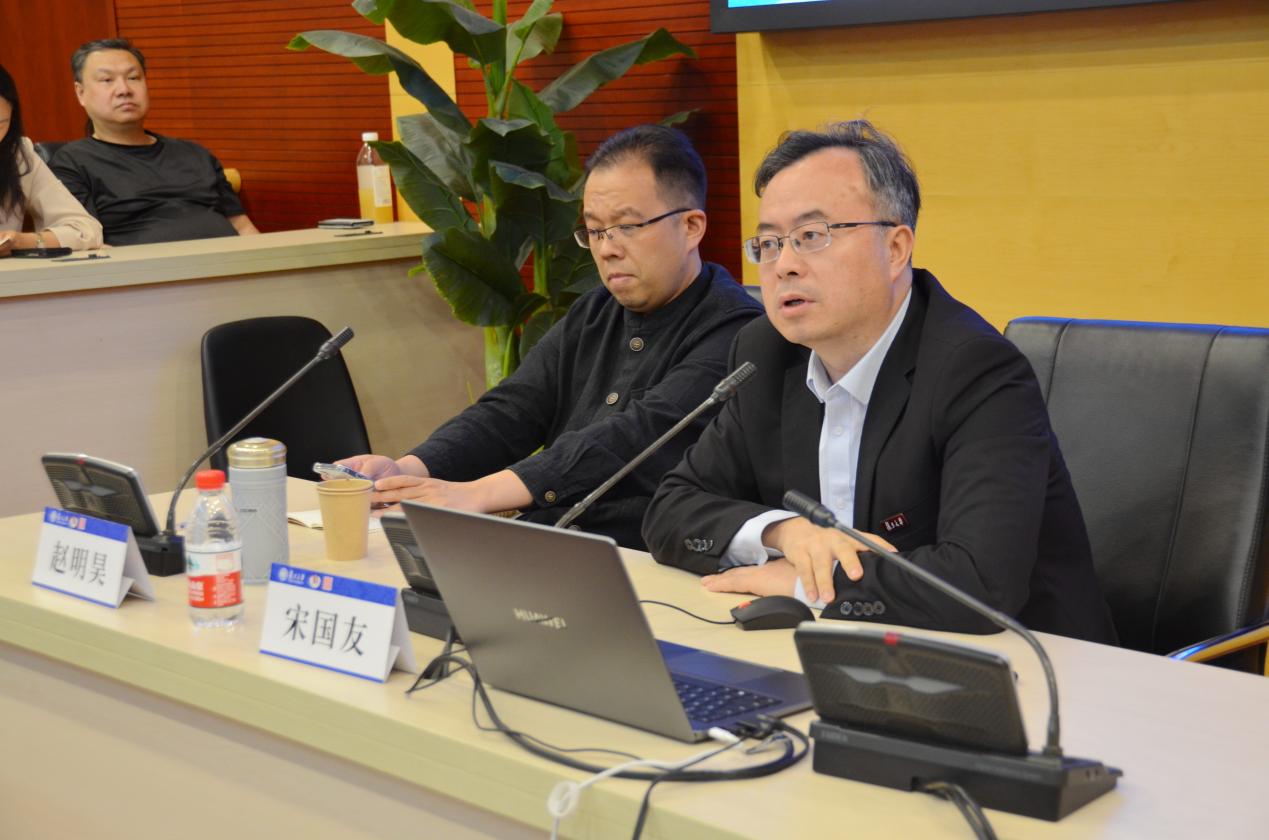
Professor Song Guoyou gave a speech titled “Understanding Trump’s Tariff War,” arguing that one must understand and internalize American perspectives in order to reflect critically on U.S. policy. Tracing the historical trajectory of American tariff policies, he noted that high tariffs have long been part of the country’s economic fabric. The Trump administration’s tariff war, he suggested, was not an effort to establish a new order but rather a “return to the future.” He identified three primary motivations: relieving federal debt pressure, reshoring manufacturing, and advancing broader strategic goals. He also compared the current tariff war with the one during Trump’s first term, arguing that it has consumed strategic leverage while helping both countries avoid serious misjudgment of each other’s capabilities and limits. Nevertheless, he cautioned that the intensifying rivalry may lead to greater uncertainties in the future.
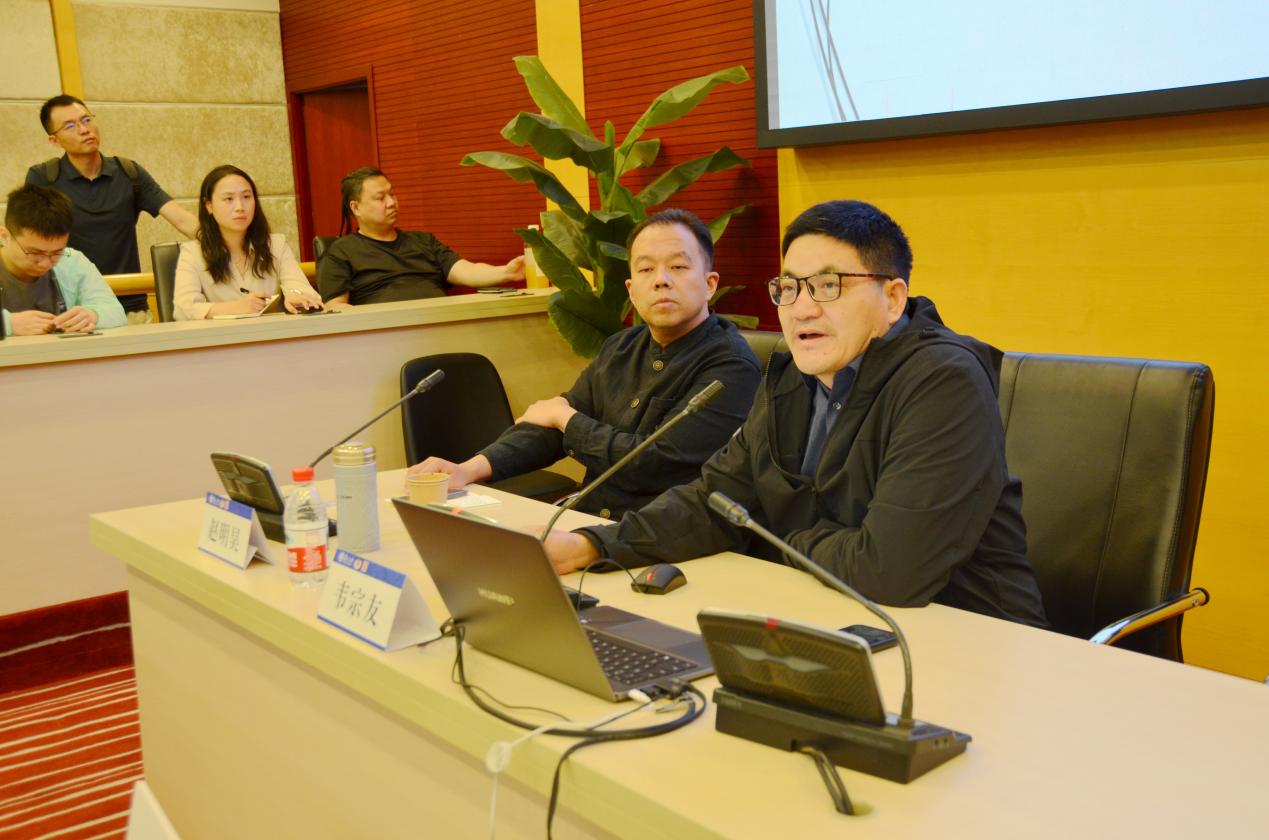
Professor Wei Zongyou’s speech, “Trump’s Indo-Pacific Strategy in His Second Term,” provided a detailed analysis of the emerging U.S. approach toward the region. He noted that although the strategy has not yet been fully realized, its outlines are becoming clearer. The U.S. is enhancing ties with countries such as India and Japan, promoting the U.S.-India 21st Century Defense Framework, updating command structures with Japan, and strengthening military presence and supply chain cooperation. Through mechanisms like the Quad, the U.S. is developing a simulated Indo-Pacific logistics network and advancing regional security in maritime, economic, and technological domains. Economically, the U.S. has shifted away from the Indo-Pacific Economic Framework, focusing instead on supply chain security and critical mineral partnerships. Washington has also urged allies to increase defense spending and deepen cooperation in shipbuilding and shipping, placing strategic pressure on relevant Chinese industries.
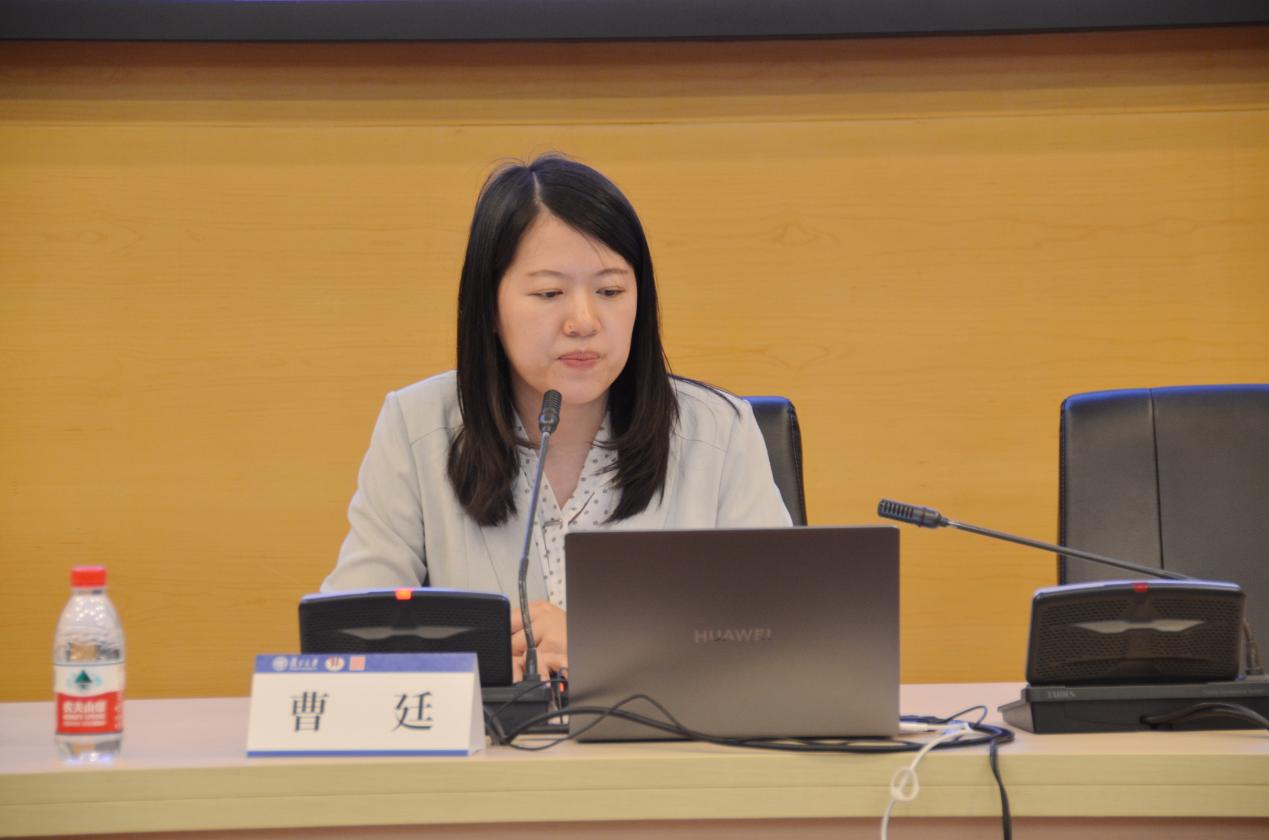
Associate Professor Cao Ting delivered a speech titled “Securitization of U.S. Interference in China–Latin America Cooperation under Trump.” She argued that the Trump administration integrated a new version of the Monroe Doctrine with a broad securitization approach, viewing China as a strategic rival in Latin America and suppressing China–Latin America cooperation in areas such as trade, high technology, and critical minerals under the guise of security. The U.S. used narrative framing, political pressure, rule-setting, and military presence to securitize economic and technological issues and constrain bilateral cooperation. Latin American countries responded in varied ways. While some cooperation projects may continue to face U.S. interference, China–Latin America relations still hold significant potential and space for further development.
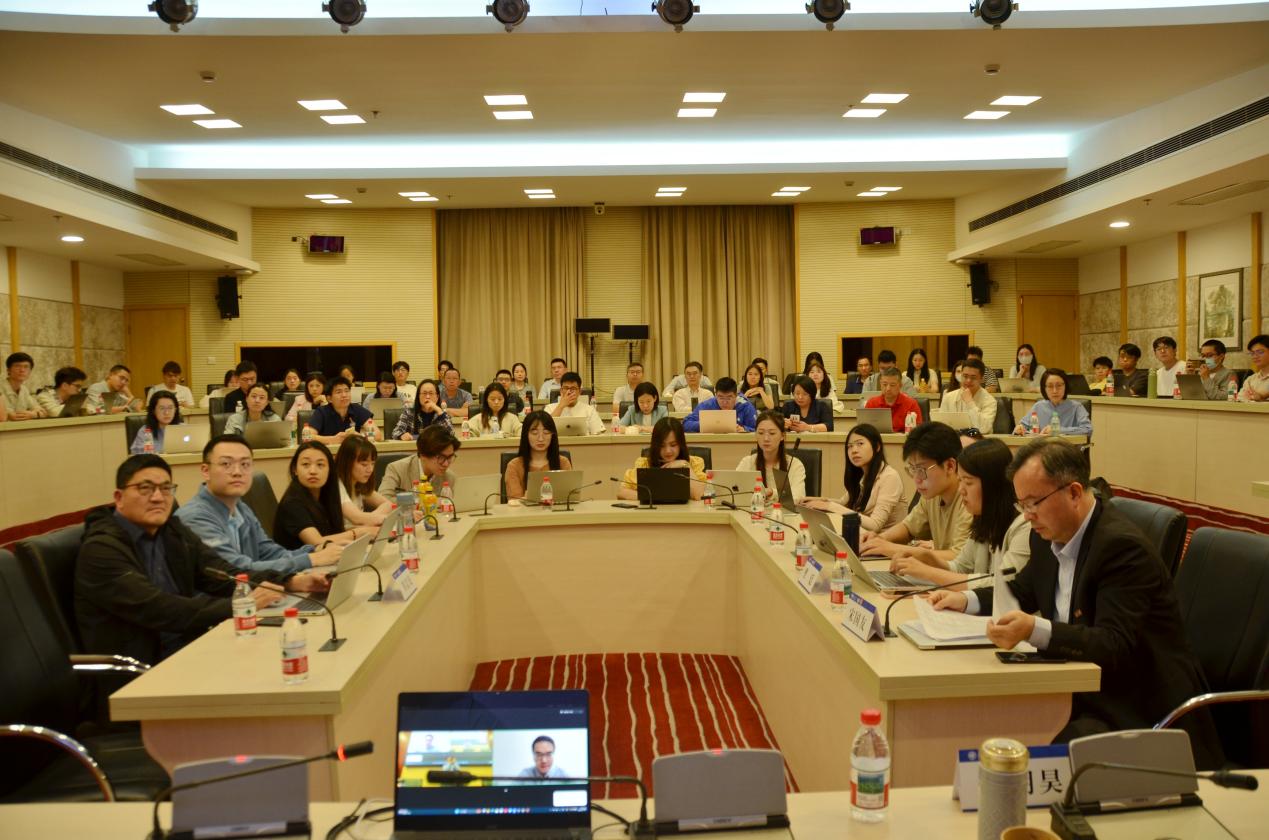
During the Q&A session, participants engaged in lively discussions on topics such as the diplomatic contrasts between the Anchorage and Geneva rounds of U.S.-China talks, the implications of the tariff war, and long-term trends in the global order over the next decade.
This symposium was part of the Center for American Studies’ 40th anniversary academic series, and also one of the featured events during Fudan University’s 2025 Think Tank Week.




